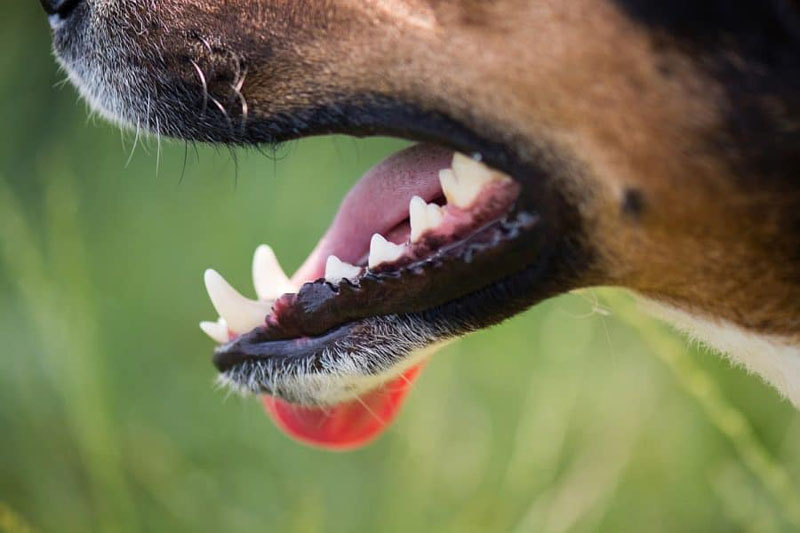Stating the obvious, jaws are there to crush food into a swallowable size. But have you ever wondered whether a dog’s jaw (or bite) is stronger than a human’s? The answer is: it depends on the size of the dog and the human.
The breed considered to have the strongest bite is the Kangal, which is a large livestock guardian dog originating in Turkey. Male Kangals weigh in at 106-132 lbs, have origins in the Mastiff breed and have a bite force of 743 psi. So, even though Kangals are considered to be gentle giants, be wary of fooling around too close to their mouth!
Moving on from biting to quivering, sometimes you may notice your dog’s lower jaw quivering. A jaw quiver is nothing more than a form of a tremble, which is common in all dogs. Some breeds also tend to tremble more than others. Breeds that are over-anxious such as Chihuahuas, Poodles, Jack Russells, and even Labradors tend to quiver at the jaw more than other non-anxious breeds. Although there can be medical reasons for jaw quivering, it’s most likely a non-medical issue. The following reasons may be causing your dog’s lower jaw to tremble:
Excitement: it’s no surprise that dogs can get excited over the smallest things. If you notice the quivering starts when you (or someone they love) walks in the door, when you bring out the food or treats or when it’s time to go on a walk, there’s a good chance this behavior is due to excitement. We have even seen male dogs start to quiver and tremble when they smell the scent of a female dog in heat. Anything that makes a dog excited can cause trembling. Sometimes it’s full-body trembling. Other times it’s isolated to one area such as the lower jaw.
Cold weather: When you walk outside on a cold winter morning, what’s the first thing you do? Shiver! Dogs are no different. Nearly all animals will tense up when they’re cold. Sometimes tensing up can lead to shivering. Dogs will usually tense their whole body, but quiver at the jaw.
Displacement language: displacement language is a form of distraction. When a dog feels like they’re about to be
attacked, they’ll begin to do something bizarre to get the attacker to wonder more about what they’re doing than actually
attacking. In the case of jaw quivering, it could get the attacker to be more curious about why the jaw is shaking and turn
them away from attacking. If your dog’s quivering is due to displacement language, that means something or someone in
the house scares them. This is common if you recently moved, got new furniture or have guests over.
Anxiety/Stress/Nervous: When a dog gets anxious, stressed, or nervous, their lower jaw may begin to shake. This is
analogous to humans’ hands shaking if they are stressed.
Old age: As dogs age they begin to lose strength. For an old dog, trembling could just be because their jaw is fatigued from eating, drinking water or barking. Older dogs also tend to experience more pain. This pain could result in jaw quivering.
So before you rush your dog to the vet, consider the environment that the dog finds itself in. The answer may be staring your in the face!






